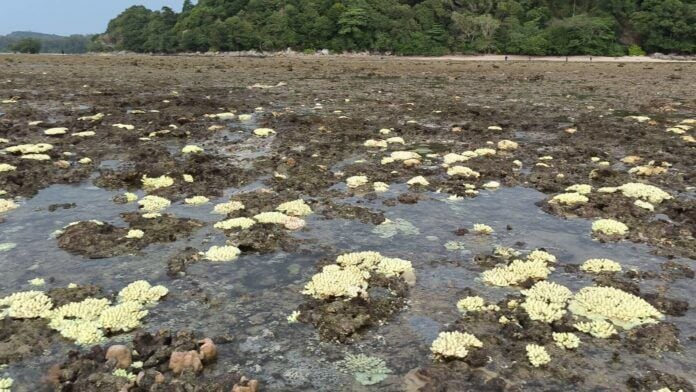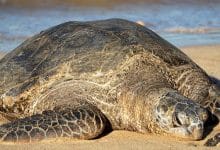Phuket’s Ko Phai Ling closes to protect coral from bleaching

Thailand’s beloved Ko Phai Ling, along with its surrounding coral reefs within Sirinat National Park in Phuket, stands temporarily closed to tourists from today until the situation improves, with the closure slated to remain until further notice.
Park Chief Watchara Songsi-awn, made the announcement following the discovery of widespread coral bleaching across the area.
With the Andaman Sea temperatures soaring to their highest in five years this April, the heat has catalysed severe coral bleaching.
Thon Thamrongnawasawat, a prominent marine scientist, has raised alarms over the unusual appearance of the corals, describing it as a major disaster for the marine ecosystem.
In response to the escalating crisis, Sirinat National Park authorities have decided to restrict access to Ko Phai Ling and its coral reefs. The aim is to mitigate further damage to the delicate coral environment and minimise the impacts of human activities that could exacerbate the bleaching process.
Thon noted that if rains fail to arrive soon, the situation will certainly reach a critical point. The closure marks a proactive measure to prevent irreversible damage to the coral reefs, which are an integral part of the marine biodiversity and a major attraction for both domestic and international tourists, reported Khaosod.
The preemptive move underscores the gravity of the threat posed by climate change and environmental degradation to Thailand’s natural wonders. The closure is a call to action for greater environmental awareness among visitors and stakeholders in the tourism industry.
This closure reflects a growing trend of environmental conservation efforts where authorities prioritize the long-term health of ecosystems over immediate tourism gains.
It serves as a reminder of the delicate balance between enjoying nature’s beauty and preserving it for future generations. Sirinat National Park’s decision to temporarily halt tourism activities demonstrates a commitment to environmental stewardship and sustainable tourism practices.
Latest Thailand News
Follow The Thaiger on Google News:


























